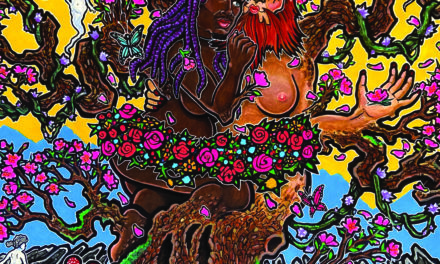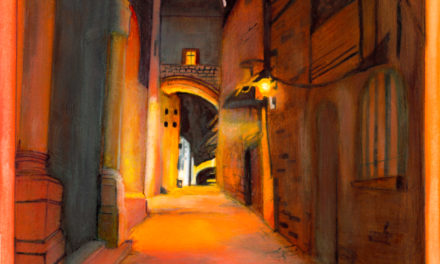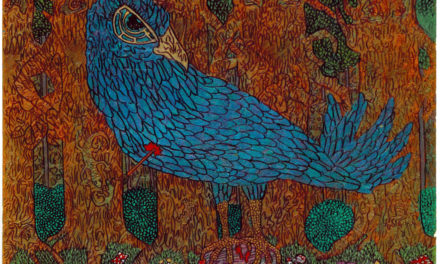Letter from the Editor
by LP Kindred
Issue 13: QTPOC
Chicago is the city that made me. It’s where I first rode a bus or train by myself. Where I sang my first notes. Where I developed the language I use for my identity and how I love. Where I fell in love with reading. It’s where I had my first kiss. It’s where I was homeless the first time. And it’s where a boy first broke my heart.
Los Angeles is the city that raised me. It’s where I learned to be self-sufficient. Where I learned to love cultures of food. Where I first proposed to someone. Where I was homeless, again. It’s where my voice failed me. It’s where I became a writer.
I’m a city-reared, Black, Gay Man. Cities breed opportunities for self-exploration and new beginnings. They are the spaces where we can find fortune, home, and reinvention. And the bigger they are, the more possibilities they embody.
When I consider my ancestors and forebears, I think about how they moved to Jackson and Chicago to ensure the success of their families and cultivate communities. I learned it’s safer to be Black in a city than outside one. Urban centers also provide more opportunity for Queer People’s survival. My Black Ancestors and Gay Ascendants shared cities together. I am their progeny. And I’m not the only one. Brown Gay and Trans People build ballroom culture in New York City, norteños slow-dance with each other in flannels, tight denim, and snakeskin boots in Los Angeles, and Queer Communities in the Global South design their own dances—all in the shelter of the urban domain.
This issue was conceived to create a little more space for the Black, Brown, and Indigenous who sex, romance, or gender differently and found their way in a city of their liking. As the stories, poetry, interviews, and art herein can attest, the life’s not always pretty. But it will always be ours.
Welcome to our Speculative City! Thank you for allowing me to guide you through this city of Queer and Trans People of Color and their stories of the fantastic, the futuristic, and the fear-inducing.
In “Retinopathy,” AP Thayer paints a portrait of a Queer Latine doing what they must to survive a too-familiar future. Then, Derwin Mak’s “The Barbecue Battle” brings us to an Earth colony with androids, launch codes, and the challenging search for authentic regional barbecue. Meanwhile, a belligerent parrot watches a family die in slow motion in Matthew Olivas’s “El Pájaro de Don Fredo.” And Kel Coleman shows us there are lives worse than death in “Early Evening Soul.”
Poetry begins when Shaoni C. White explores the joy and music of the discarded in “Polyethylene Kids” and ends with “Pomegranate,” where Joseph Hope muses on a loved one no longer within reach.
Because I see this issue as a practice in fostering community, the nonfiction section features an interview series with people whose writing and work in the speculative community reflect our intersections. I first talk to writer Iori Kusano about worldbuilding, exploitation, and making cons accessible worldwide. With writer Suzan Palumbo, we discuss her shift from awards administrator to award nominee and, more importantly, who gets to be the monster. Last, nonfiction writer and Locus editor Arley Sorg tells us what he’s seen and wants to see in the future of SFF and how to dispose of racists. I also ask each of them what story they would have written for this issue. Gotta read the whole interview to find out what they said!
Visual art from talented creators across the country emblazon the walls of this issue. For the chilling cover, we worked with the talented Angelica Navarro. We’re also honored to feature art curated through A.B.O. Comix, a collective of creators and activists amplifying the voices at the intersection of the LGBTQ and the incarcerated. A.B.O. Comix seeks to keep Queer Prisoners connected to outside community and help them fight toward liberation. Please check out the art prints and “punk-zines” on the website; whatever you spend supports the most vulnerable of our Queer Communities.
I’m so incredibly proud of this issue, this city we built for you.
Lastly, let me show appreciation and gratitude to Speculative City’s Editor-in-Chief and the greatest collaborative mentor I could hope for, Meera Velu. I first met Meera when my second story found a home in this magazine’s Afrofuturism issue, co-edited by Stefani Cox. This mag helped me find confidence and my voice, and I hope Meera and I impart the same enthusiasm to other writers and QTPOC in the space. I hope I succeeded, but much praise goes to Ms. Velu. She’s a beast and you should consider reading slush here or contributing to the Patreon and definitely combing through the back issues to find new writers to follow.
All right, y’all. Follow the links to read more work by these amazing creatives.
You have the key to the city. Be sure to make the most of this invitation.
EIC note: LP rivals me as a beast! This issue wouldn’t be without his own special genius. Read his stories, buy him Ko-fi.




